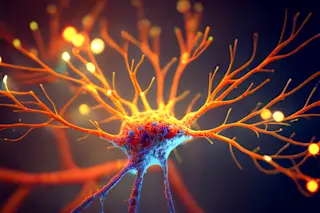At the beginning of the 20th century, Santiago Ramón y Cajal, often called “the father of modern neuroscience,” made it clear: In adults, “the nerve paths are something fixed, ended, and immutable. Everything may die, nothing may be regenerated,” he wrote.
The inability of adults to produce new neurons was pretty much the central dogma of neuroscience until the 1960s. But as with a lot of fathers in that decade, a younger person challenged Ramón y Cajal’s decree.
In 1962, Josef Altman, an American biologist, published a paper in the journal Science entitled “Are New Neurons Formed in the Brains of Adult Mammals?” The answer was that they very well might be. In subsequent years, the work of Altman and other researchers clearly demonstrated the activity of neural stem cells (the cells that make new neurons) in adult mammals.
However, the old dogma didn’t die without a fight. Many, if ...















